Our Library
Explore our publications, from research papers and series to educational materials, covering all aspects of conflict transformation and peace promotion.
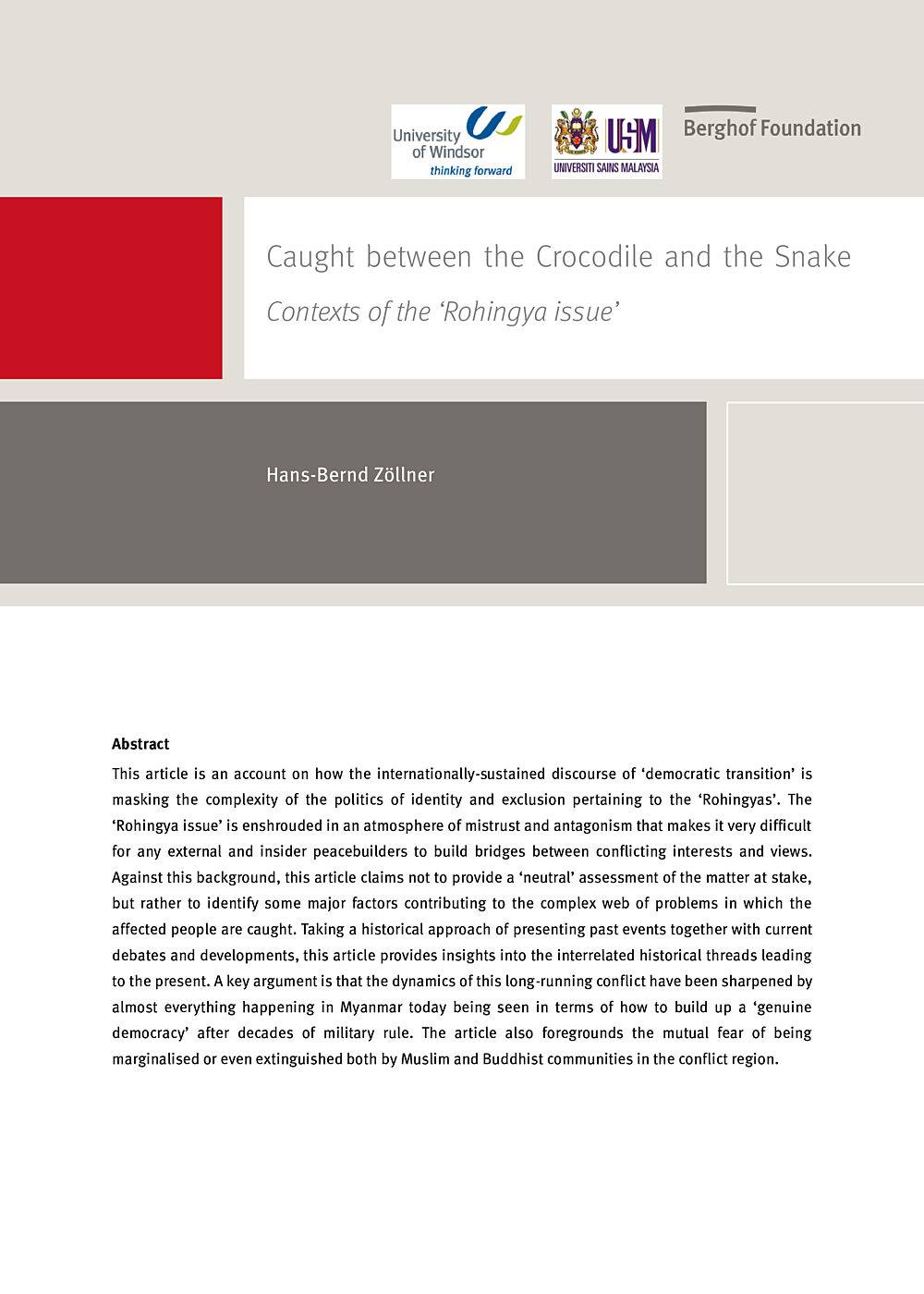
Caught between the Crocodile and the SnakeContexts of the ‘Rohingya issue’
This article is an account on how the internationally-sustained discourse of ‘democratic transition’ is masking the complexity of the politics of identity and exclusion pertaining to the ‘Rohingyas’. The ‘Rohingya issue’ is enshrouded in an atmosphere of mistrust and antagonism that makes it very difficult for any external and insider peacebuilders to build bridges between conflicting interests and views. Against this background, this article claims not to provide a ‘neutral’ assessment of the matter at stake, but rather to identify some major factors contributing to the complex web of problems in which the affected people are caught.
- Year2017
- Author(s)Hans-Bernd Zöllner
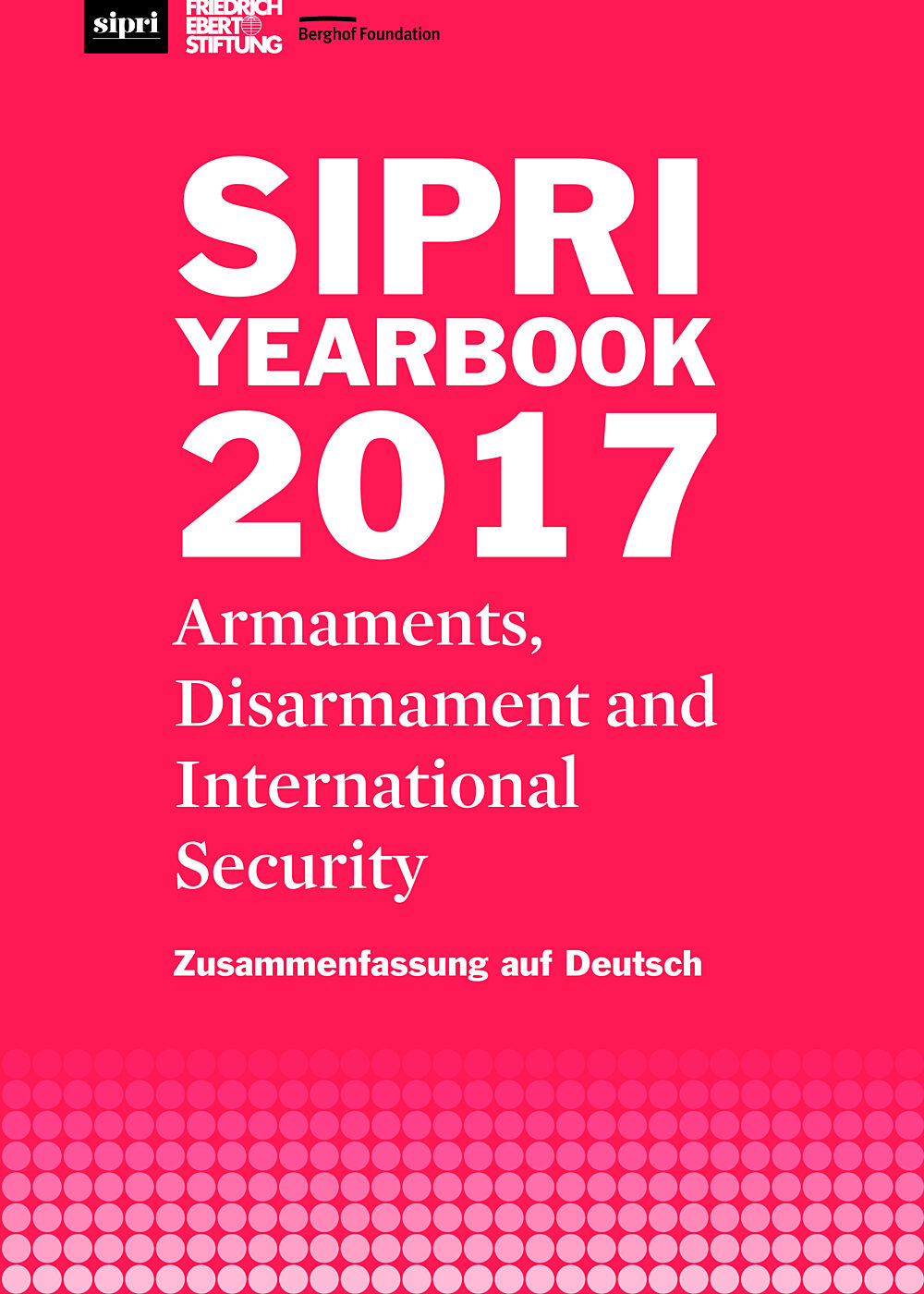
SIPRI Yearbook 2017Armaments, Disarmaments and Internatinal Security (Kurzfassung Deutsch)
Das SIPRI Yearbook wird weltweit von Politikern, Diplomaten, Journalisten, Wissenschaftlern, Studierenden und Bürgern geschätzt. Als zuverlässige und unabhängige Quelle liefert es Daten und Analysen zu den Themen Rüstung, Abrüstung und internationale Sicherheit und einen Überblick über Entwicklungen in den Bereichen internationale Sicherheit, Waffentechnologien, Militärausgaben, Rüstungshandel und -produktion sowie bewaffnete Konflikte. Auch Bestrebungen zur Kontrolle konventioneller, nuklearer, chemischer und biologischer Waffen werden hier thematisiert.
Diese Broschüre fasst die 48. Ausgabe des SIPRI Yearbook 2016 zusammen.
- Year2017
- Author(s)Stockholm International Peace Research Institute (SIPRI)
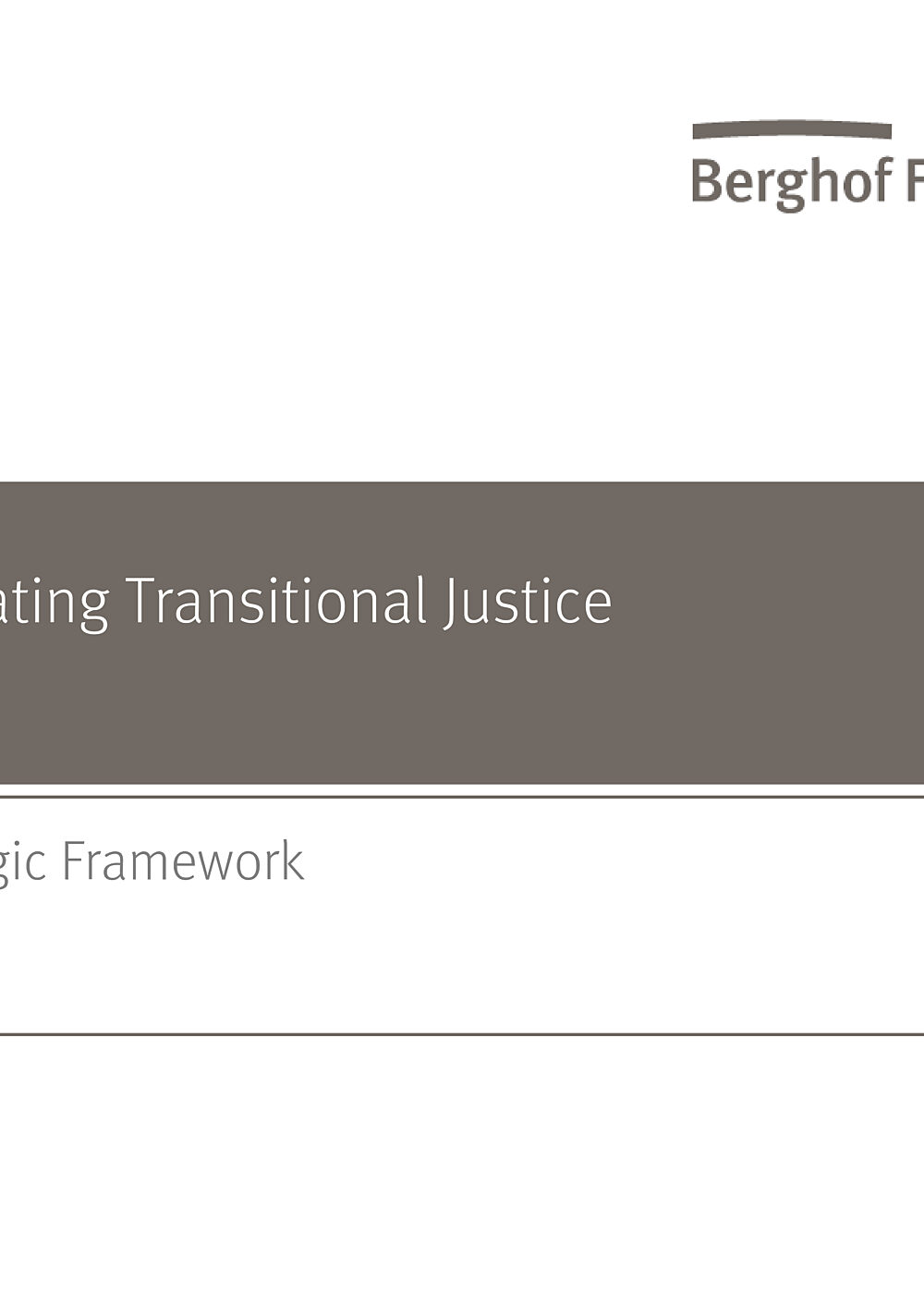
Negotiating Transitional JusticeA Strategic Framework
This Strategic Framework was developed during the 9th Meeting on Negotiations for Resistance and Liberation Movements (RLMs) in Transition entitled Transitional Justice and the Role of Victims in Peace Negotiations held in October 2017, in Berlin. It provides an overview of some of the most frequent challenges RLMs face when negotiating justice and dealing with questions of victim participation. At the same time, this overview intends to offer a strategic framework for readers to address these challenges in light of comparative best practices and lessons-learned in order to support an informed understanding and strategy making of conflict actors in negotiating transitional justice
- Year2017
- Author(s)Nico Schernbeck, Luxshi Vimalarajah

El diálogo en los núcleos veredalesCaja de herramientas metodológicas para facilitadores(as) de diálogo en el marco de los Programas de Desarrollo con Enfoque Territorial (pdet)
La Caja es un conjunto de herramientas que les permite a ustedes, como personas encargadas de organizar y facilitar los espacios de participación y diálogo en el marco de los desarrollos del pdet, dimensionar e implementar su tarea, tomando en cuenta una propuesta de ruta metodológica y sus principios orientadores.
- Year2017
- Author(s)Agencia de Renovación del Territorio
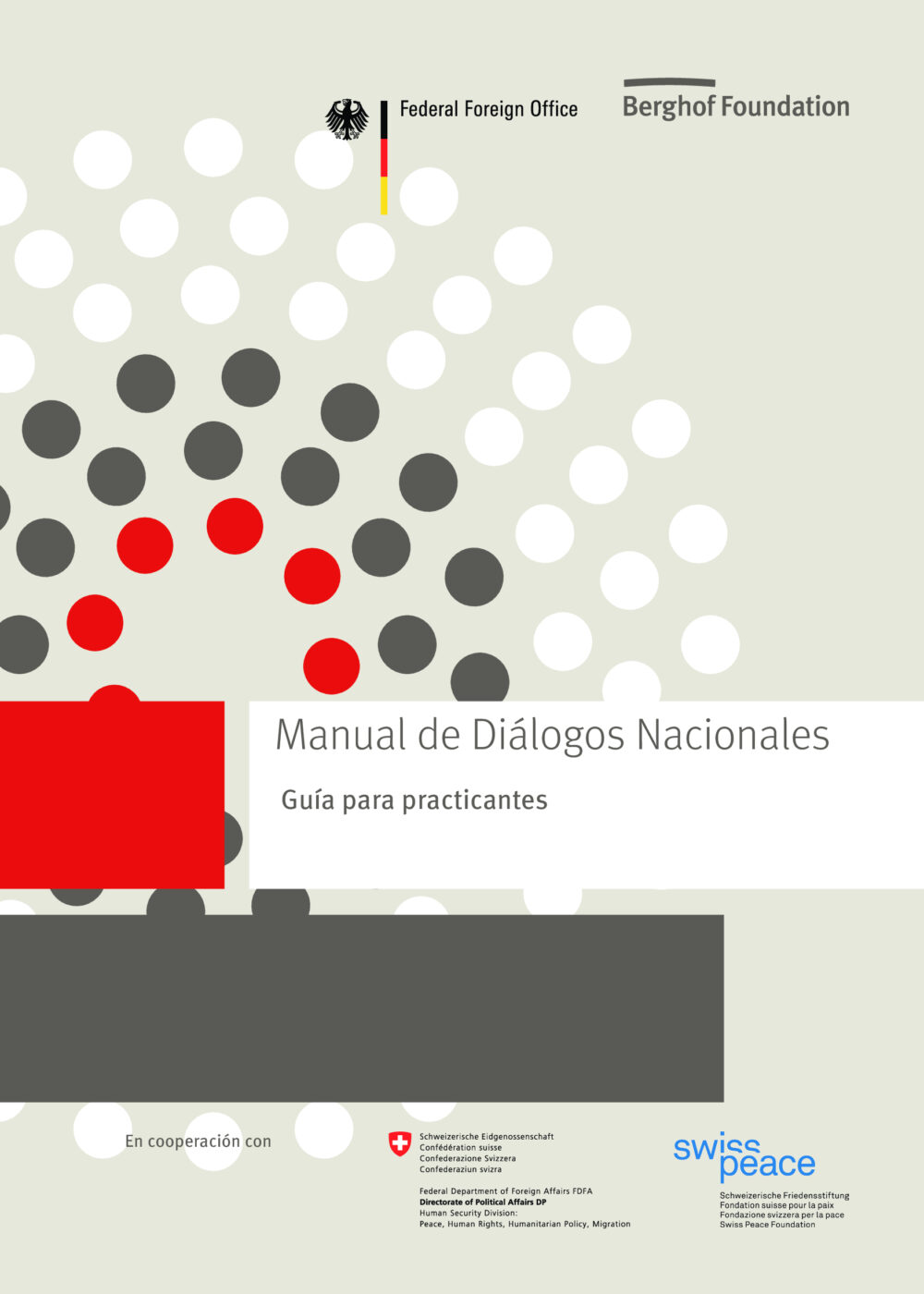
Manual de Diálogos NacionalesGuía para practicantes
La Fundación Berghof ha elaborado el presente Manual de Diálogos Nacionales en colaboración con la Fundación Suiza para la Paz. En él se plasman los resultados de un estudio pormenorizado al que han contribuido numerosas partes interesadas y académicos.
- Year2017
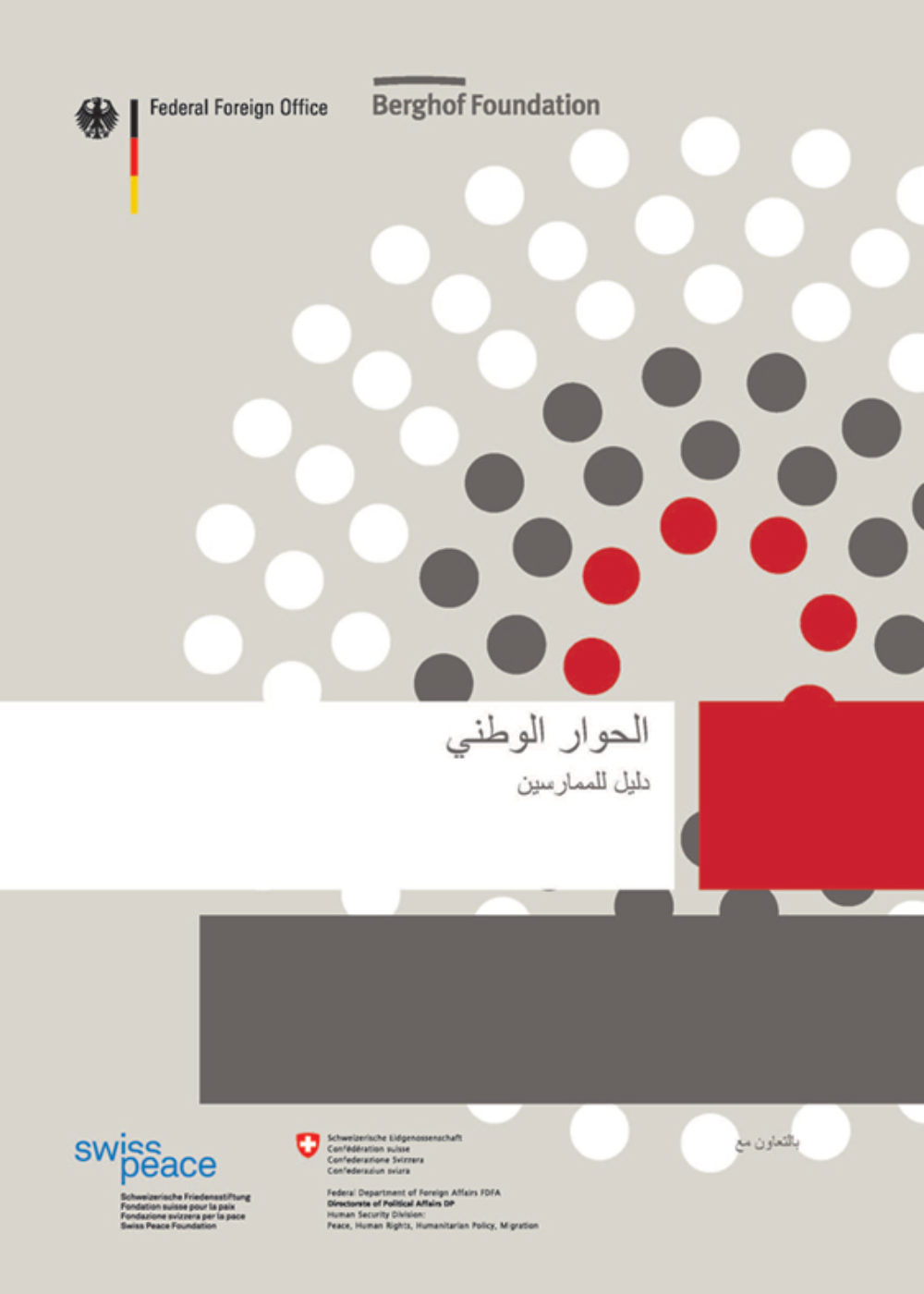
الحوار الوطنيدليل للممارسين
يستند هذا الدليل إلى سلسلة مندراسات الحالة المعاصرة، ويهدف إلى المساهمة في النقاش الناشئً بين حول الحوار الوطني جامعاّ الرؤى المتعمقة والخبرات منّ شتى المناطق المتنوعة. ويسعى بذلكّ إلى عرض تأمالت منهجية وطرحٍ مشورة ّ عملي ّ ة. وبالتالي فإن الدليلُ يساند الجهات ذات الصلة بالنزاعُ والممارسين )المحليين والدوليين على حد سواء( لمواجهة التحديات التي تعترضهم ولوضع التصميم األنسب لسياقهم الخاص.
- Year2017

Manuel de dialogue nationalGuide à l’attention des praticiens
Le présent manuel se fonde sur des études de cas contemporaines et entend contribuer au débat naissant sur le dialogue national, en rapprochant les perspectives et les expertises de diverses régions et en proposant une réflexion systématique et des orientations concrètes.
- Year2017
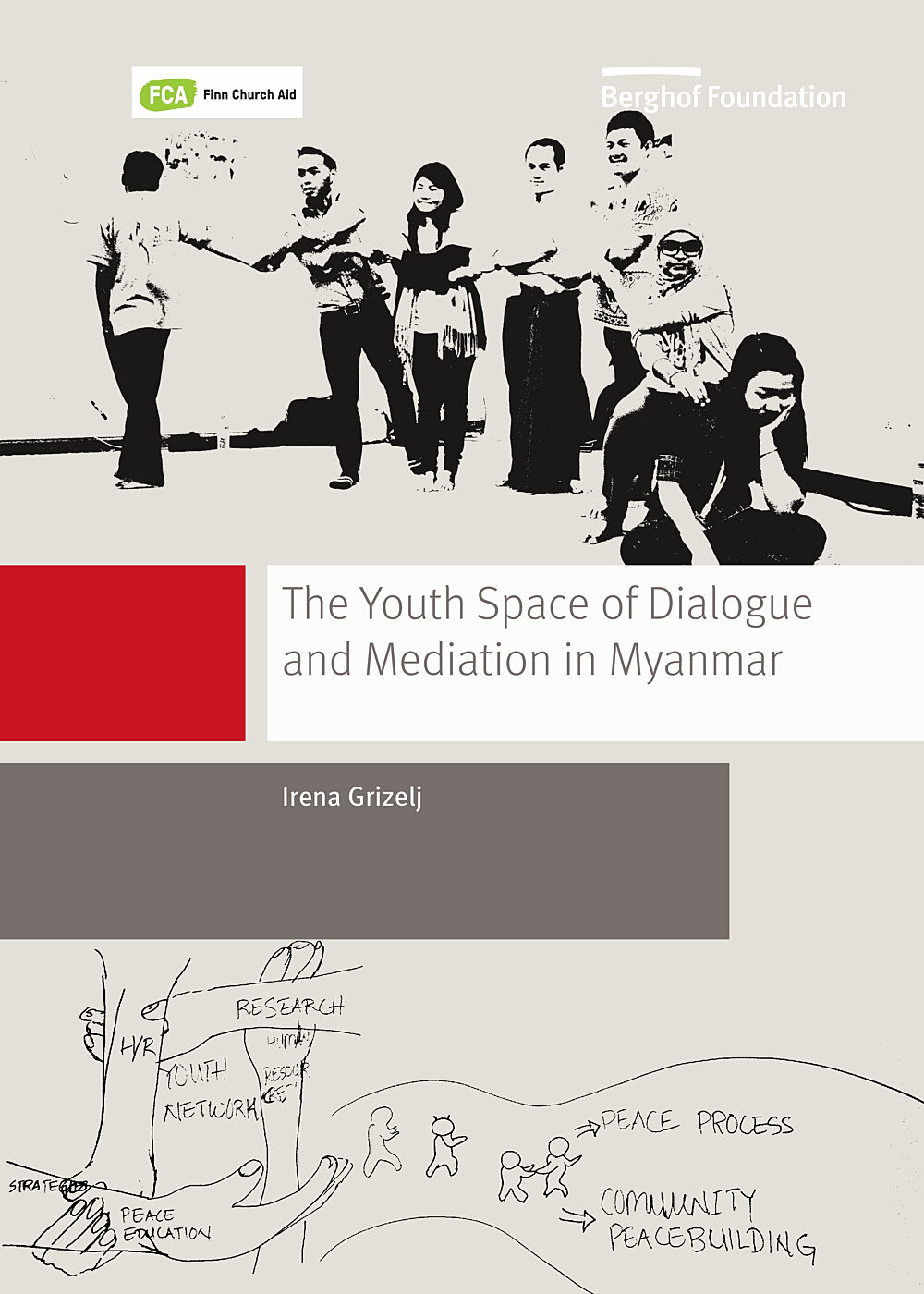
The Youth Space of Dialogue and Mediation in Myanmar
This paper is part of a broader exploratory study on the youth space of dialogue and mediation. Young people’s efforts in transforming conflict across the globe are abundant and are to some extent documented. In conflict research, however, there is a lack of reflection on the particularities of the youth approach and contribution to dialogue and mediation processes. In an attempt to offer some preliminary reflection, this paper explores the youth space of dialogue and mediation — its characteristics, dynamics, dimensions, challenges and potential — in the context of Myanmar.
- Year2017
- Author(s)Irena Grizelj
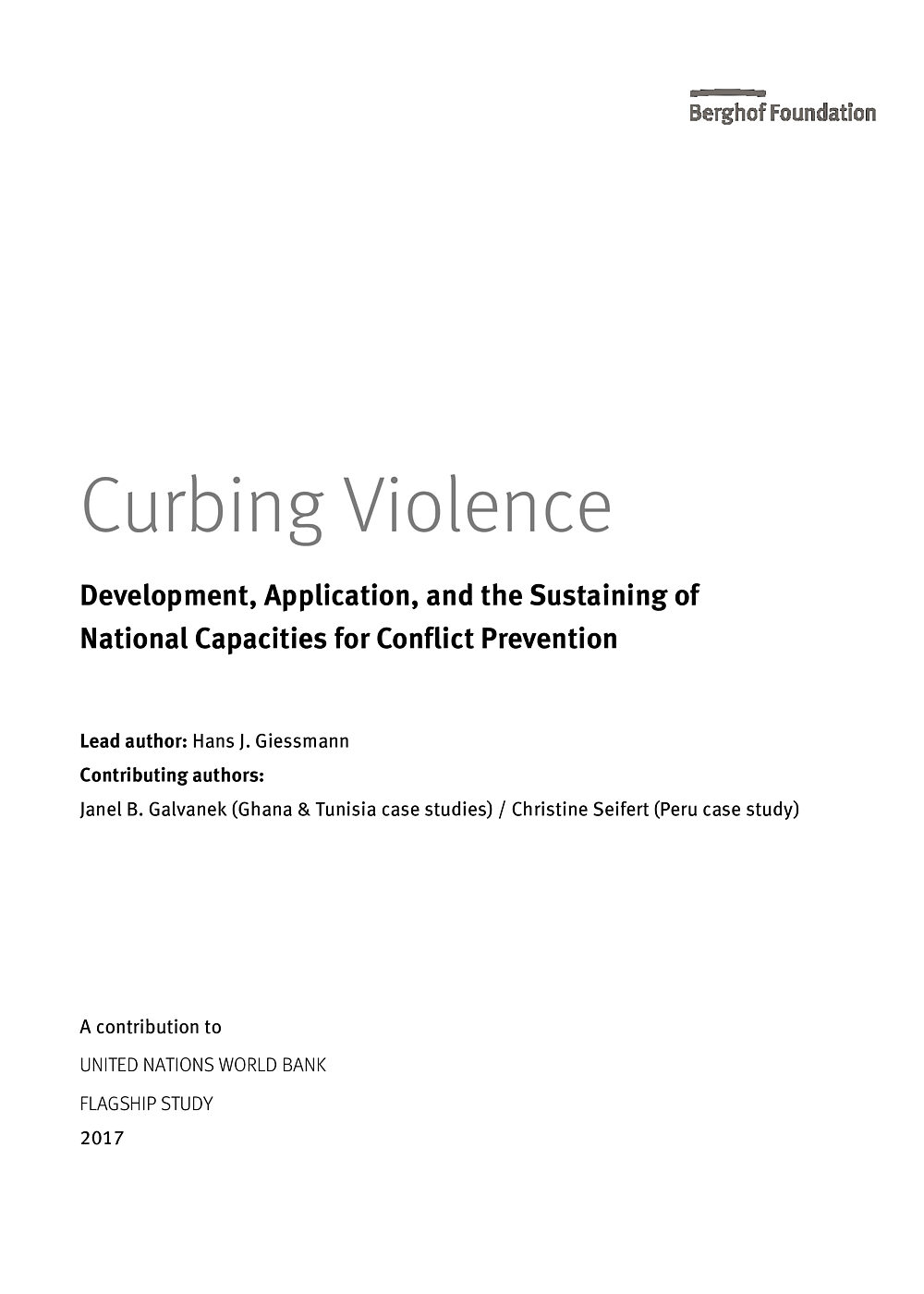
Curbing ViolenceDevelopment, Application, and the Sustaining of National Capacities for Conflict Prevention
Contributing to the new World Bank’s Flagship Study "Pathways for Peace. Inclusive Approaches to Preventing Violent Conflict", this research study sheds light on and draws lessons from cases wherein specific national and related sub-national capacities for the prevention of violent political and social conflict were developed and applied by key domestic actors in internally-led processes of conflict prevention. In doing so, the research has focused on countries where complementary external support was provided through NGOs or by governments primarily under the development assistance umbrella. Hence, insights and recommendations from this research may also feed back into the Joint UNDP-DPA Programme on Building National Capacities for Conflict Prevention.
- Year2017
- Author(s)Hans-Joachim Giessmann, Janel B. Galvanek, Christine Seifert
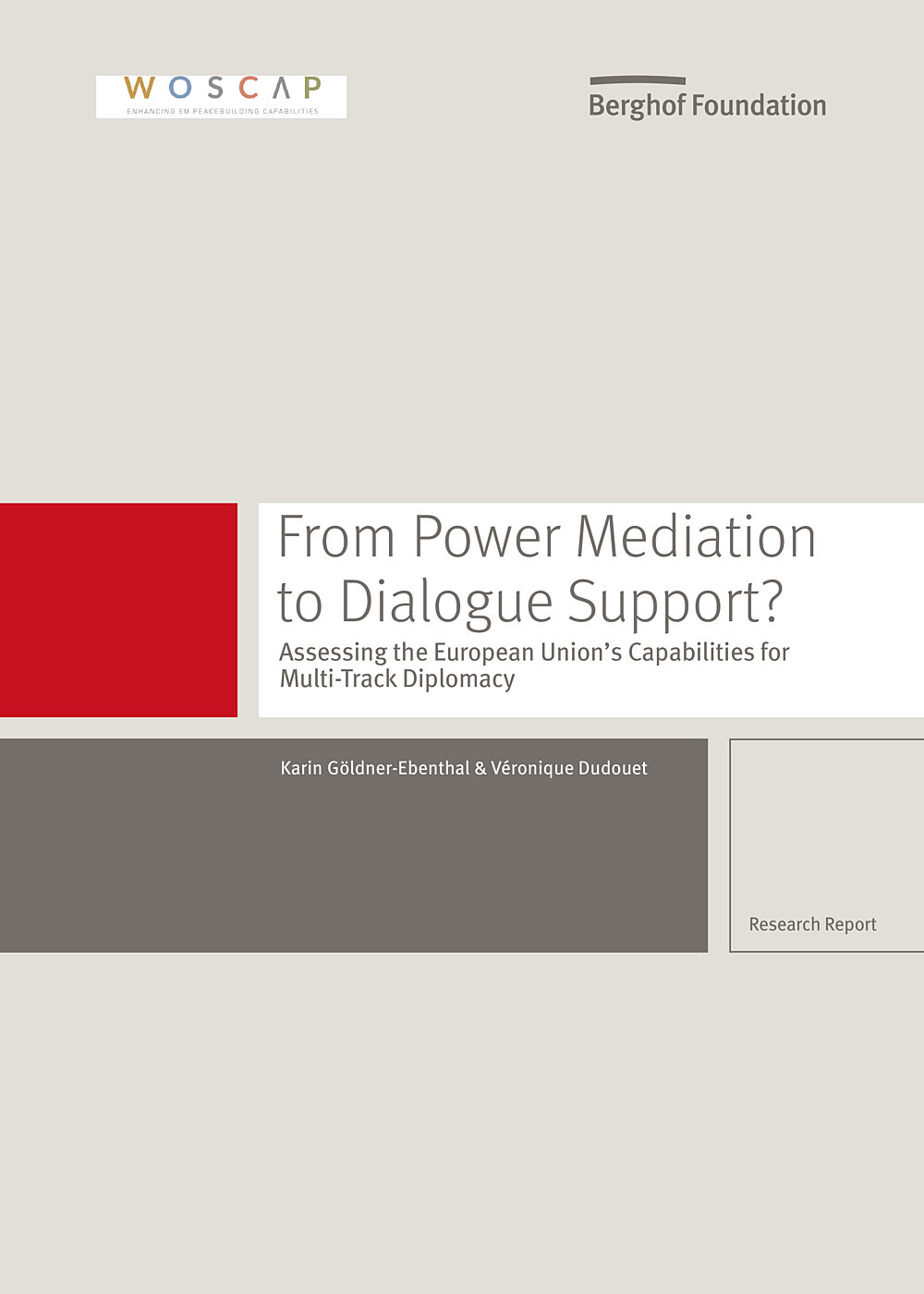
From Power Mediation to Dialogue Support?Assessing the European Union's Capabilities for Multi-Track Diplomacy
This paper presents results from the European Union Horizon 2020-funded project “Whole-of-Society Conflict Prevention and Peacebuilding” (WOSCAP). It is one of three cross-country comparative assessments of EU capabilities for conflict prevention and peacebuilding with regards to various thematic 'clusters' of external intervention. The other two comparative studies deal with EU support for security sector reform and decentralisation reform. The empirical contents are primarily based on field research carried out by local partner organisations in Mali, Yemen, Georgia and Ukraine.
- Year2017
- Author(s)Karin Göldner-Ebenthal, Véronique Dudouet